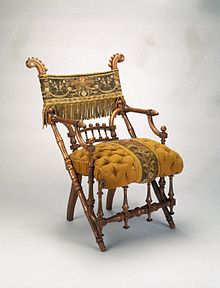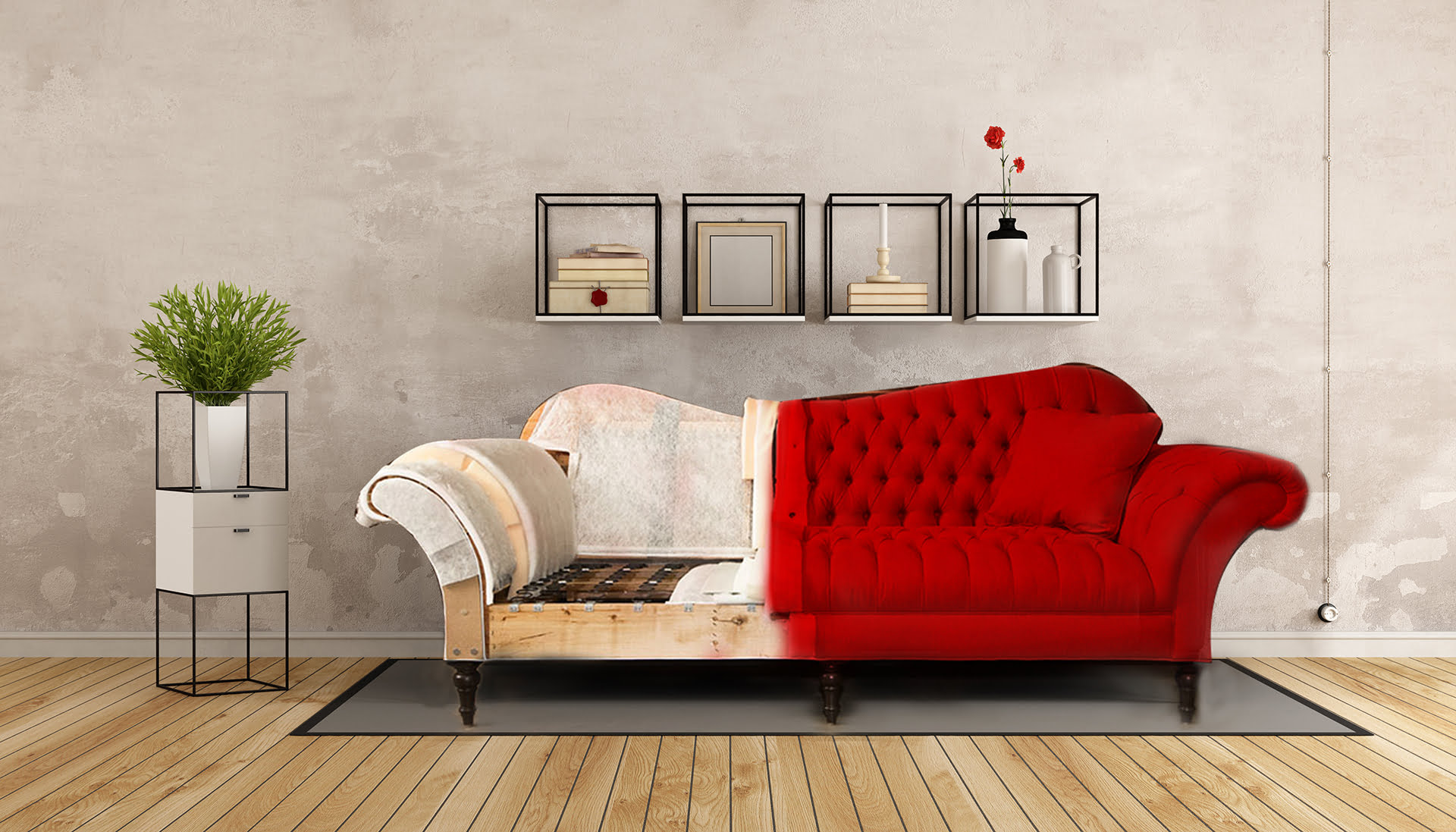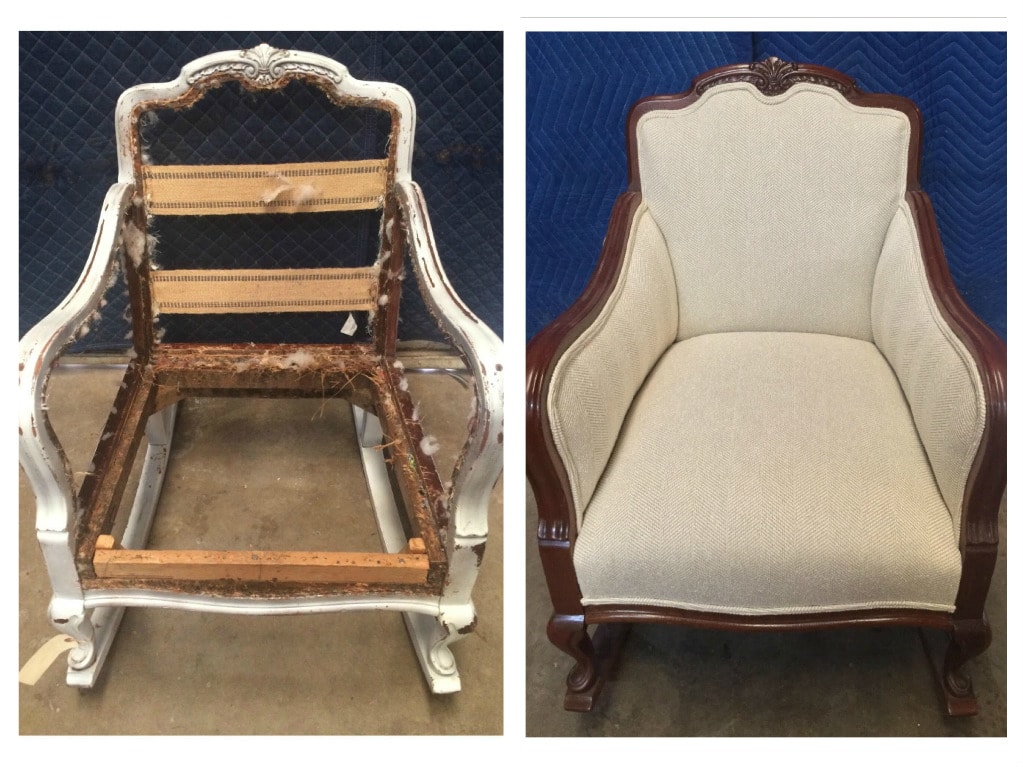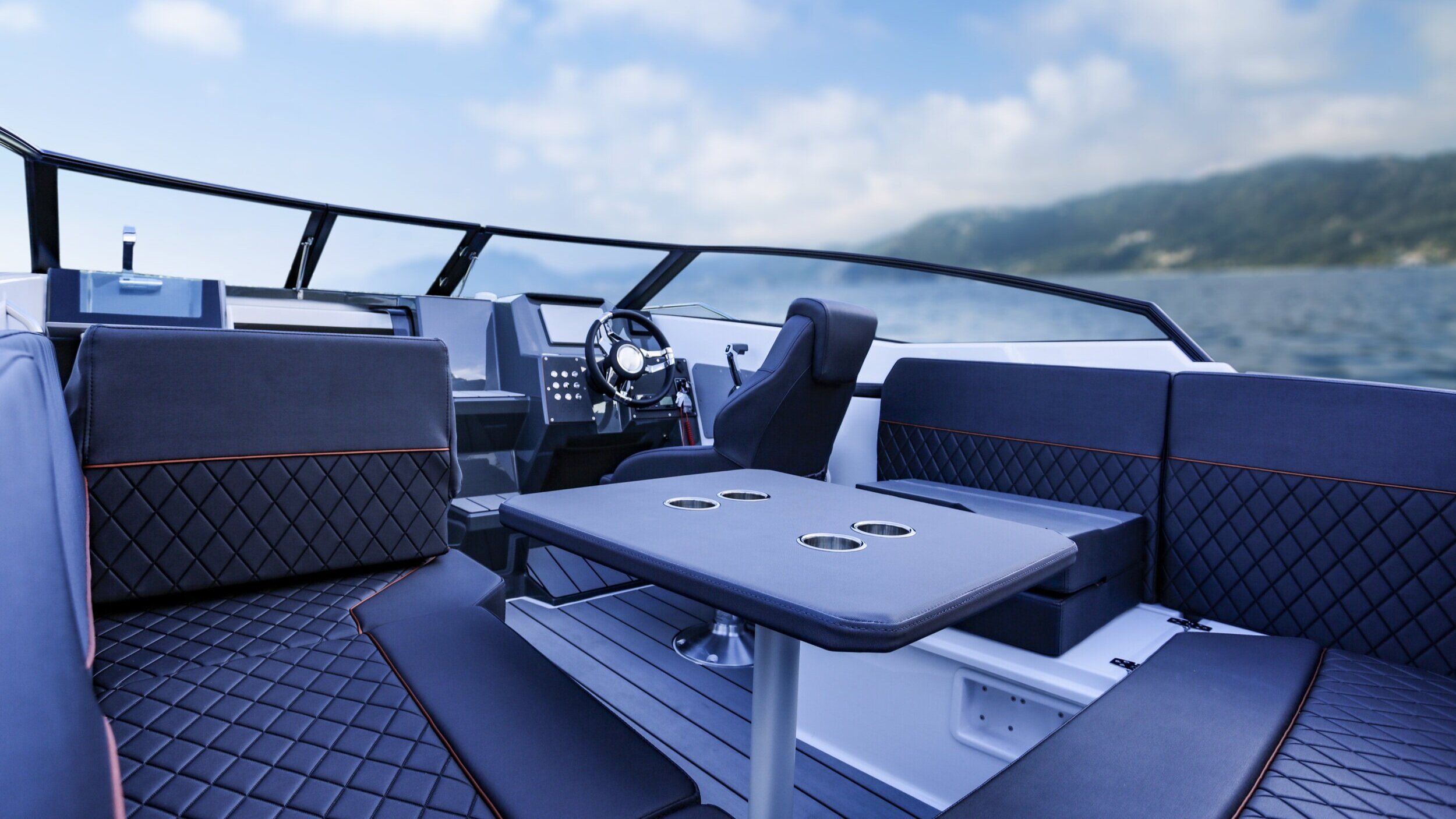The earliest upholsterers, from early Egyptian times to the beginning
of the Renaissance, nailed animal skins or dressed leather across a
rigid framework. They slowly developed the craft to include cushions,
padding, and pillows—stuffed with such materials as goose down and
horsehair. The medieval upholsterer, who was primarily concerned with
fabrics, made mattresses and hangings. In the 17th century beds were
draped with sumptuous fabrics and ornate trimmings; as these beddings
became less fashionable, chairs and sofas were in turn elaborately
upholstered with velvet, silks, and needlework. Upholsterers may be
called upon to repair or replace seating, cushions, cabin furnishings,
headliners and even carpeting on boats.
Marine upholstery
differs in that one has to consider dampness, sunlight and hard usage.
There are many sources for marine grade vinyls such as Spradling and
Morbern and they come in hundreds of colors and styles now. Each style
of marine grade vinyl is rated according to cold crack, rub counts,
and mold resistance. Stainless-steel hardware such as staples, screws
must be used to prevent rust and early break down of hardware and
fasteners. The newest products for fastening vinyl in marine
applications are Tenara thread and Monel staples.



